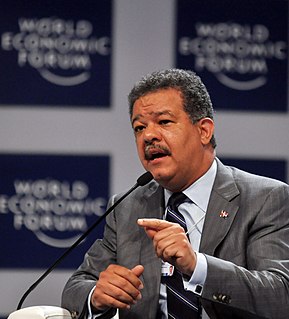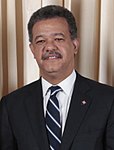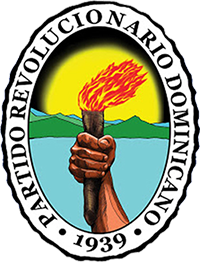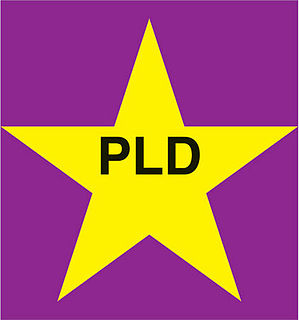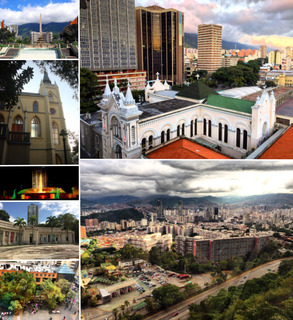
The Dominican Republic is a representative democracy, where the President of the Dominican Republic functions as both the head of the government and head of the multi-party system. Executive power is exercised by the government. Legislative power is vested in the bicameral National Congress. The Judiciary is independent of the executive and the legislature.

The President of the Dominican Republic is both the head of state and head of government of the Dominican Republic. The presidential system was established in 1844, following the proclamation of the republic during the Dominican War of Independence. The President of the Dominican Republic is styled Your Excellency, Mr. President during his time in office. His official residence is the National Palace.

Danilo Medina Sánchez is a Dominican politician and the current President of the Dominican Republic, since 2012.
José Francisco Peña Gómez was a politician from the Dominican Republic. He was the leader of the Dominican Revolutionary Party (PRD), a three-time candidate for president of the Dominican Republic and former Mayor of Santo Domingo. He is considered, along with Joaquín Balaguer and Juan Bosch, as one of the most prominent Dominican political figures of the 20th century. His widow Peggy Cabral is currently one of the two co-Presidents of the PRD.

Elections in Lithuania gives information on elections and election results in Lithuania.

A Portuguese presidential election was held on 22 January 2006 to elect a successor to the incumbent President Jorge Sampaio, who was term-limited from running for a third consecutive term by the Constitution of Portugal. The result was a victory in the first round for Aníbal Cavaco Silva of the Social Democratic Party candidate, the former Prime Minister, won 50.54 percent of the vote in the first round, just over the majority required to avoid a runoff election. Voter turnout was 61.53 percent for eligible voters.
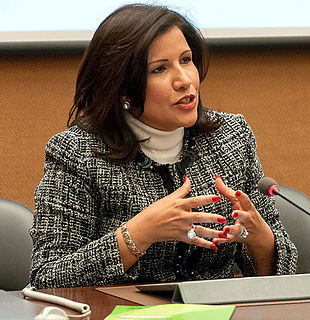
Margarita María Cedeño Lizardo, widely known as Margarita Cedeño de Fernández, is the current Vice-President of the Dominican Republic. She is married to former President Leonel Fernández and during his tenure she was the First Lady.

Presidential elections were held in the Dominican Republic on 16 May 2008. The result was a victory for incumbent President Leonel Fernández of the Dominican Liberation Party.
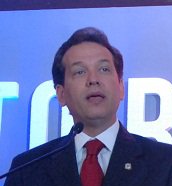
Víctor Orlando Bisonó Haza nicknamed Ito Bisonó, is a Dominican politician, business administration and current member of the Chamber of Deputies of the Dominican Republic representing the 2nd circunscription of the National District since the year 2002. Bisonó is a member of the Social Christian Reformist Party, and he has been Second Vice President of the Dominican-Haitian Chamber of Commerce.

A parliamentary election was held in the Dominican Republic on 16 May 2010 to elect members to the 32 seats in the Senate and 183 seats in the Chamber of Deputies. Polls forecasted a victory for the Dominican Liberation Party (PLD) of President Leonel Fernández. Before the election, 96 of the 178 Chamber of Deputies seats and 22 of the 32 Senate seats were controlled by the PLD.
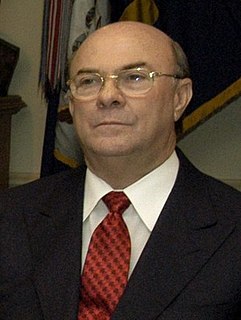
Presidential elections were held in the Dominican Republic on 16 May 2000. Hipólito Mejía of the Dominican Revolutionary Party (PRD) won the election, defeating Danilo Medina of the Dominican Liberation Party (PLD) and former president Joaquín Balaguer of the Social Christian Reformist Party (PRSC). Voter turnout was 76.1%.
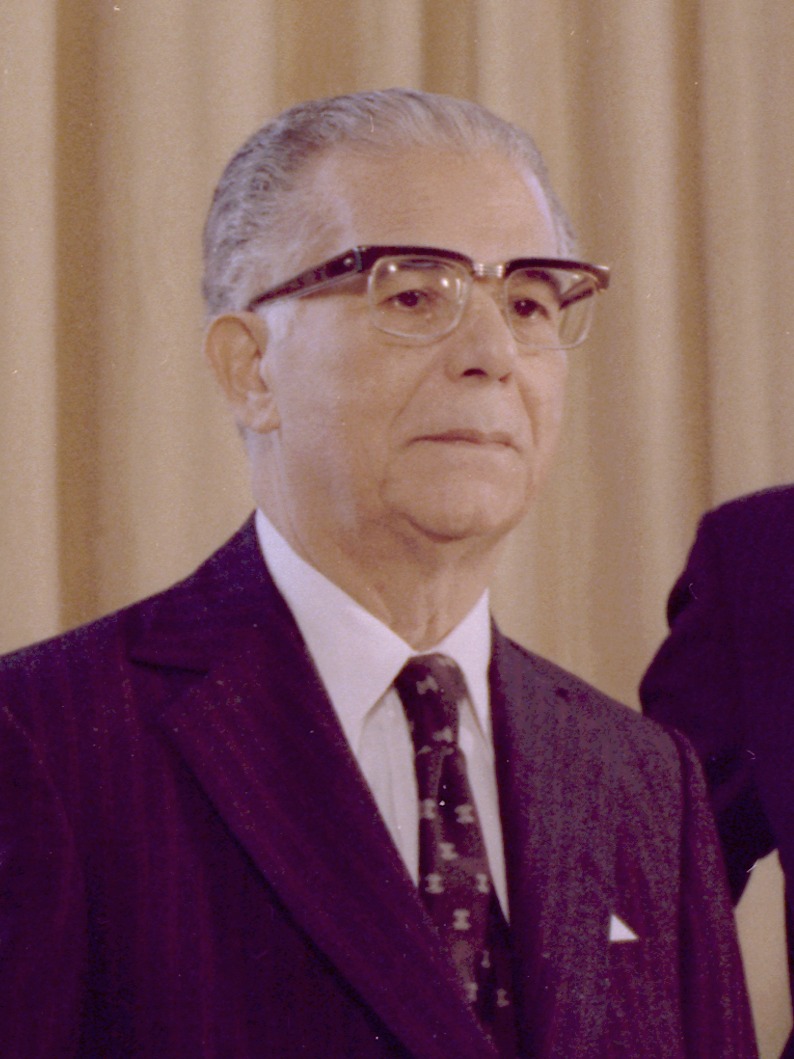
General elections were held in the Dominican Republic on 16 May 1986. Joaquín Balaguer of the Social Christian Reformist Party won the presidential election, whilst the PRSC-led alliance won the Congressional elections. Voter turnout was 72.2%.

Presidential elections were held in the Dominican Republic on 16 May 1996, with a second round on 30 June. Whilst José Francisco Peña Gómez won the most votes in the first round, he was defeated by Leonel Fernández in the second round, after the Social Christian Reformist Party, whose candidate had lost in the first round, declared their support for Fernández. Voter turnout was 78.6% in the first round and 76.8% in the second.

Presidential elections were held in the Dominican Republic on 20 May 2012. They were the fifth quadrennial elections for the presidency and vice-presidency since 1998, when a change in the electoral law separated the presidential from the congressional and municipal elections.
General elections were held in Dominican Republic on 15 May 2016 to elect a president, vice-president and the Congress, as well as 20 deputies to the Central American Parliament, municipal councils, mayors and vice mayors. On 15 May 2015 Roberto Rosario, president of the Central Electoral Board, said that there would be about 4,300 seats up for election in the "most complex elections in history".

Miguel Octavio Vargas Maldonado is a civil engineer, businessman, and politician from the Dominican Republic. He is the chairman of the Dominican Revolutionary Party, a minority party allied with the PLD government and current Minister of Foreign Affairs.


